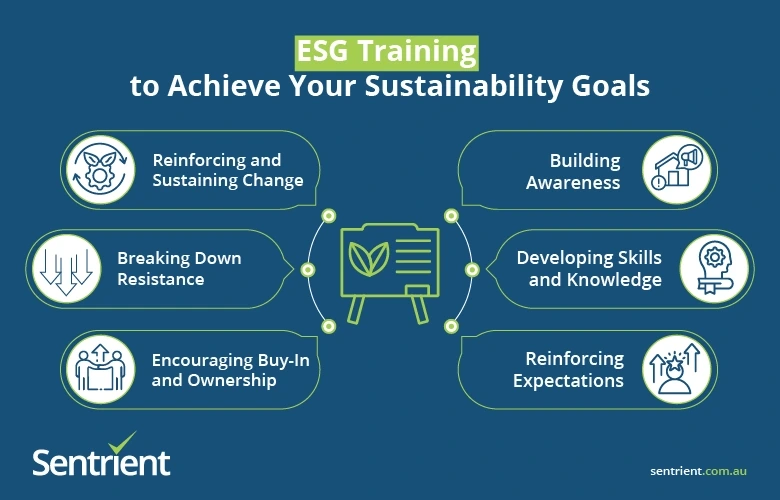Whether your organisation is embarking on its ESG journey or is already well-versed in sustainable practices, it is important to consider the upcoming mandatory reporting on Sustainability Standards. This development has significant implications for various aspects of your business, including governance, processes, and personnel.
ESG reporting responsibilities will be distributed among different functions within the organisation, potentially coordinated through a sustainability reporting function or finance department.
By 2024, Sustainability Standards and mandatory reporting are expected to be integrated into Australian corporate law.
To proactively prepare for these changes, it is essential to focus on the following key aspects:
- Familiarise yourself with Sustainability Standards.
- Assess the current state of ESG reporting in your organisation.
- Understand the role of HR in reporting and driving the sustainability transition.
- Take actions to support your team, business, and people during this transition.
To guide your organisation towards sustainable practices and prepare for future reporting requirements, consider the following actions:
- Expand your knowledge of ESG and sustainability, focusing on areas relevant to your role and organisation.
- Engage in meaningful discussions with stakeholders to identify risks and opportunities.
- Seek external expertise to navigate ESG matters effectively.
- Implement ESG elearning training programs to foster a culture that aligns with your ESG goals and develops the necessary skills within your leaders and workforce.
ESG training that supports achieving your ESG goals
Sustainability leaders cite culture and capability among the key factors in an organisation’s ability to achieve its ESG targets. Training can be a powerful tool to foster cultural change within a corporation.

Here’s how it can contribute to creating a positive shift in company culture:
Building awareness: ESG elearning programs provide an opportunity to educate employees about the desired cultural values, norms, and behaviours. By raising awareness of the importance of cultural change and its benefits, employees gain a deeper understanding of why change is necessary.
Developing skills and knowledge: Equip your employees with the skills and knowledge needed to embrace and embody the desired cultural changes. It can provide them with new tools, techniques, and best practices, enabling them to contribute to the change process effectively.
Reinforcing expectations: Training allows organisations to communicate their expectations regarding the desired cultural changes clearly. By setting clear behavioural standards and reinforcing them through training, employees gain a better understanding of the specific actions and attitudes that are expected of them.
Encouraging buy-in and ownership: When employees actively participate in training and have the opportunity to provide input, they feel a sense of ownership and engagement in the cultural change process. This fosters buy-in and commitment, as employees feel valued and empowered to contribute to the transformation. This is critical to achieving your ESG goals.
Breaking down resistance: Cultural change can face resistance from employees who are comfortable with the existing culture. Address these concerns by providing a platform for questions and misconceptions. By addressing resistance directly, training can help overcome barriers and encourage employees to embrace the change.
Reinforcing and sustaining change: Cultural change requires ongoing reinforcement. ESG elearning programs can be designed to provide continuous support and reminders, ensuring that the desired cultural values and behaviours remain top of mind for employees.





